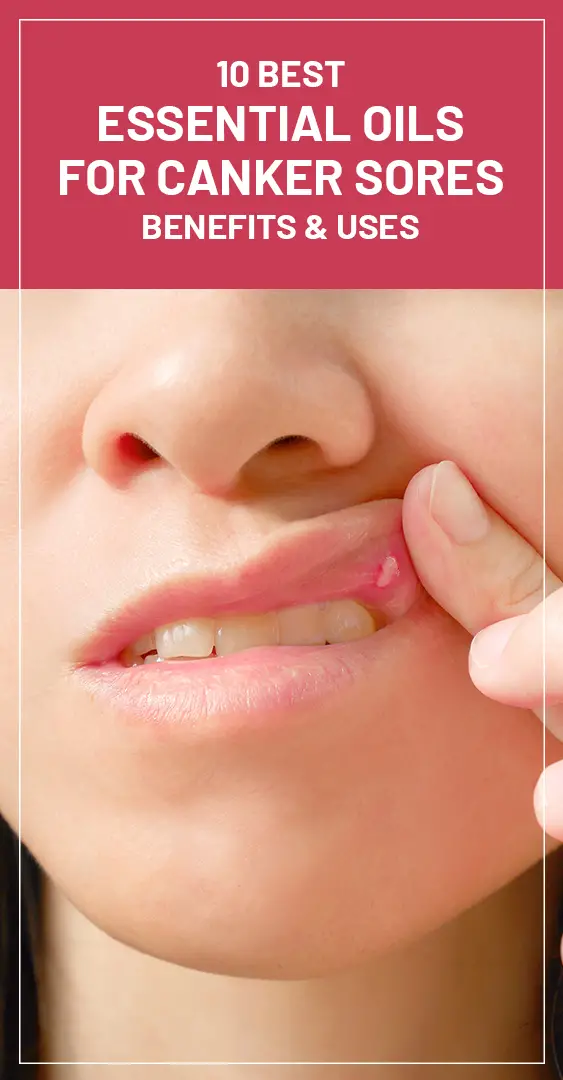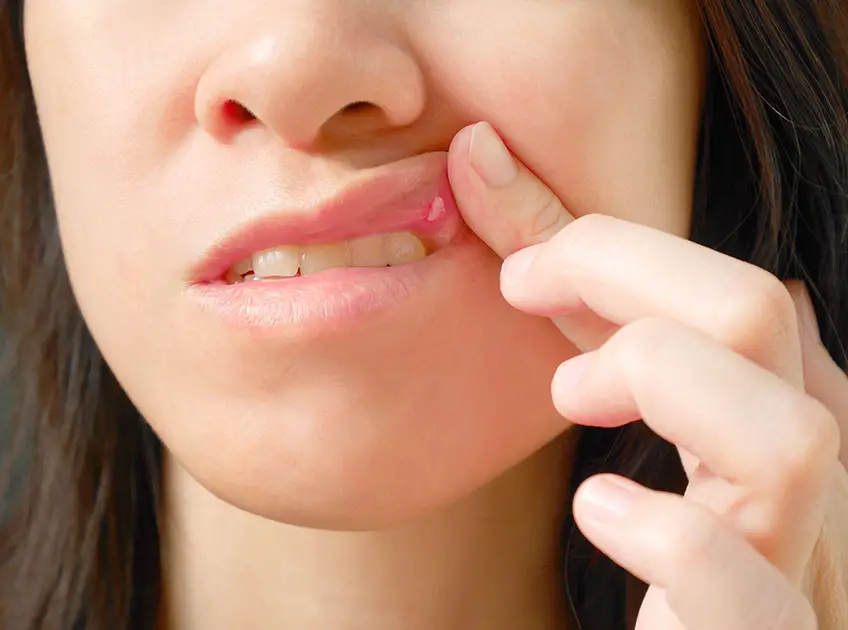
Important: This article is for informational purposes only. Please read our full disclaimer for more details.
A canker sore is a small, painful ulcer that can form on the inside of your mouth, tongue, or cheek. While the exact cause of canker sores is unknown, they’re often triggered by stress, trauma (such as biting your cheek), or certain foods (like acidic fruits or spicy dishes). There is no cure for canker sores, but there are a few things you can do to help ease the pain and speed up the healing process. One home remedy that may help is using essential oils.
Best Essential Oils for Canker Sores
Essential oils are concentrated plant extracts that contain healing compounds. When used topically, they can help soothe canker sore pain and promote healing. Here are 7 essential oils that may help treat canker sores:
1. Bergamot oil
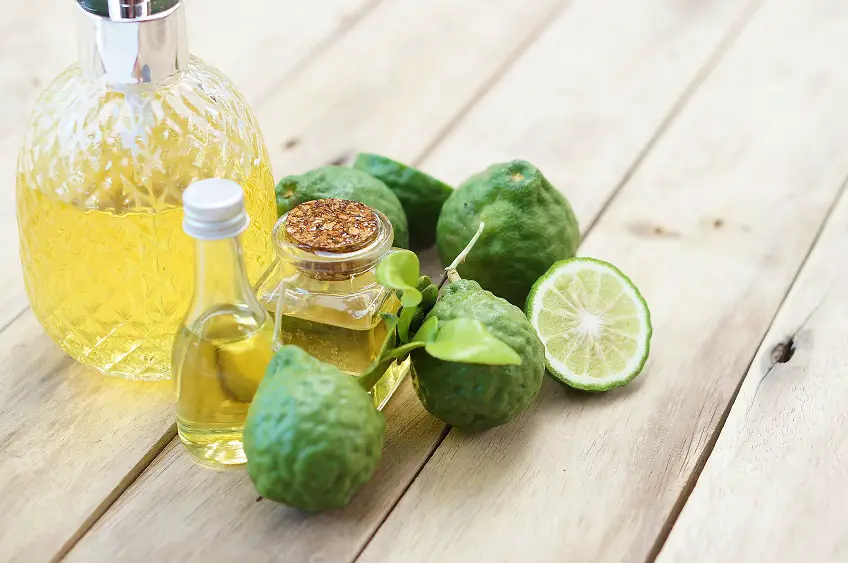
Bergamot oil is extracted from the rind of the bergamot orange, a citrus fruit that grows in Italy. Bergamot oil has a unique citrusy-floral scent and is commonly used in aromatherapy. It’s also been shown to have antimicrobial and anti-inflammatory properties that can relieve pain.
[ Recommended: Home Remedies for Canker Sores ]
2. Clove oil
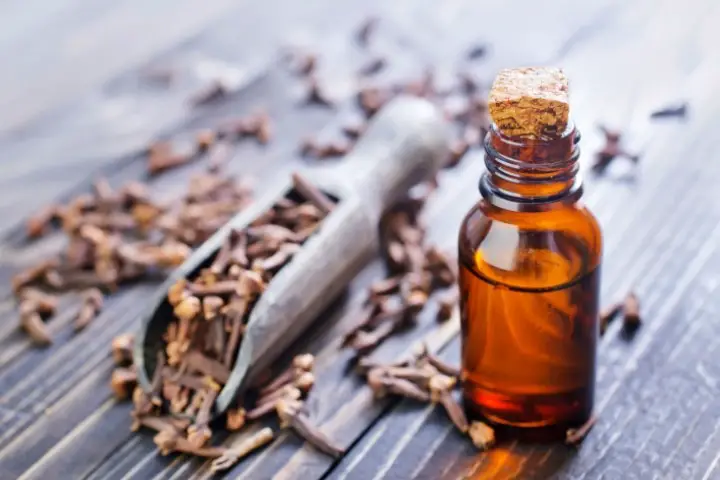
Clove oil is extracted from the flower buds of the clove tree and has long been used as a natural remedy for pain relief. It’s also an antimicrobial agent, which means it can help kill bacteria and promote healing.
To use clove oil for canker sores, mix a few drops with a carrier oil and apply it to the sore using a cotton swab. You can also add a few drops of clove oil to your toothpaste before brushing your teeth.
[ Recommended: How to Use Hydrogen Peroxide for Canker Sores ]
3. Oregano oil
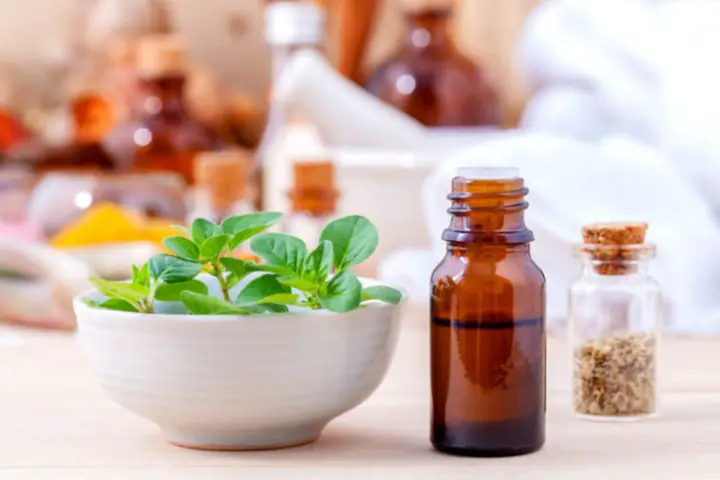
Oregano oil is a popular home remedy for many ailments, including canker sores. It’s rich in antioxidants and compounds that have antimicrobial, anti-inflammatory, and pain-relieving properties.
To use oregano oil for canker sores, mix a few drops with water or a carrier oil and apply it to the sore using a cotton swab.
[ Recommended: How to Use Baking Soda for Canker Sores ]
4. Lavender oil
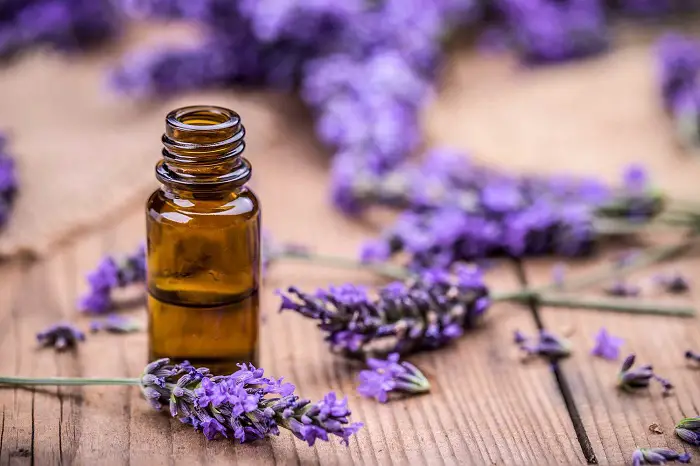
Lavender oil is derived from the lavender plant and has antimicrobial, anti-inflammatory, and pain-relieving properties. These properties may help to kill bacteria, reduce swelling, and ease pain associated with canker sores.
To use lavender oil for canker sores, mix a few drops with a carrier oil and apply it to the sore using a cotton swab.
5. Myrtle oil
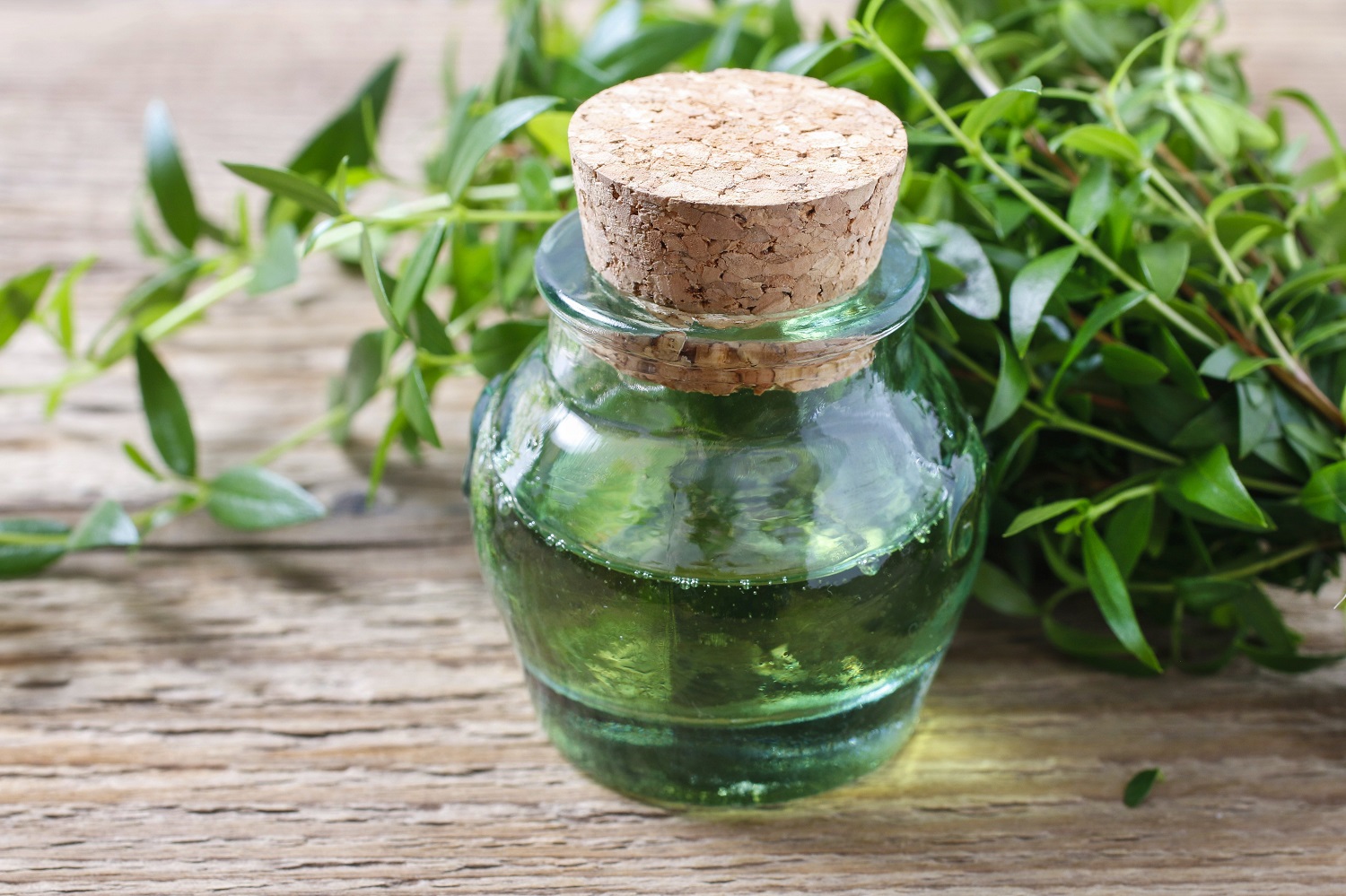
Myrtle oil is derived from the myrtle plant and has antimicrobial, anti-inflammatory, and pain-relieving properties. These properties may help to kill bacteria, reduce swelling, and ease pain associated with canker sores.
To use myrtle oil for canker sores, mix a few drops with a carrier oil and apply it to the sore using a cotton swab.
6. Peppermint oil
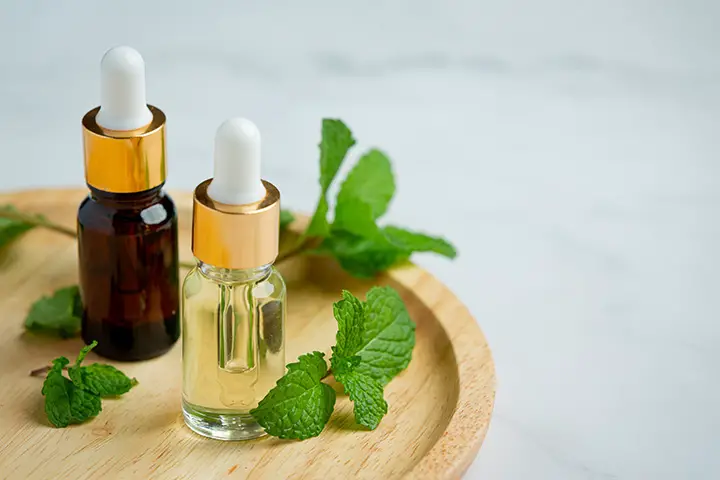
Peppermint oil is derived from the peppermint plant and has antimicrobial, anti-inflammatory, and pain-relieving properties. These properties may help to kill bacteria, reduce swelling, and ease pain associated with canker sores.
To use peppermint oil for canker sores, mix a few drops with a carrier oil and apply it to the sore using a cotton swab. You can also add a few drops of peppermint oil to your toothpaste before brushing your teeth.
7. Tea Tree oil
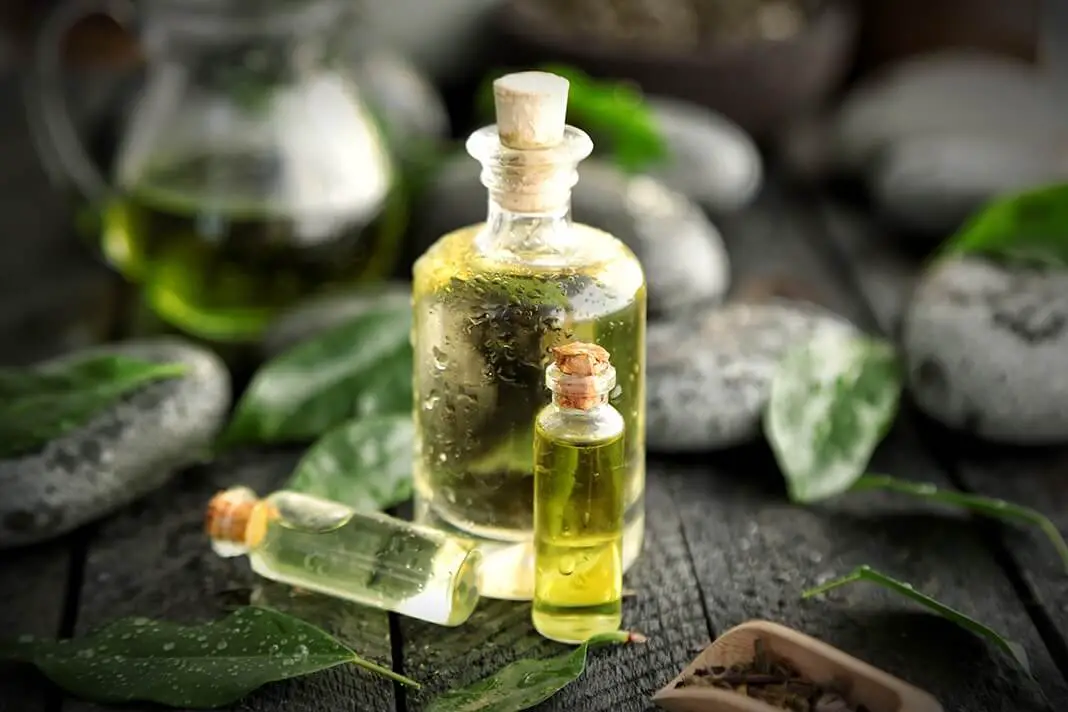
Tea tree oil is derived from the leaves of the tea tree and has antimicrobial, anti-inflammatory, and healing properties. These properties may help to kill bacteria, reduce swelling, and promote healing of canker sores.
To use tea tree oil for canker sores, mix a few drops with a carrier oil and apply it to the sore using a cotton swab.
How Safe are They?
Essential oils are generally safe when used topically. However, they can cause skin irritation in some people. If you experience any side effects, discontinue use and speak with your doctor.
Pregnant women and young children should not use essential oils unless under the supervision of a healthcare provider.
When used as directed, these essential oils may help speed up healing and reduce pain associated with canker sores. However, they are not a cure and will not prevent future outbreaks. If you experience frequent or severe canker sores, speak with your doctor to find the best treatment option for you.
When to Consult The Doctor?
If you develop a fever, pus-filled bumps, or other signs of infection, see your doctor. Your doctor can prescribe antibiotics to clear the infection. He or she may also recommend other treatments to ease your symptoms.
If you have canker sores that don’t heal within two weeks or recur frequently, make an appointment to see your doctor. He or she can determine if you have a more serious underlying condition, such as an autoimmune disorder.
If you’re using essential oils for canker sores, it’s important to remember that they should be used in addition to other treatments, not as a replacement. Be sure to talk to your doctor if your canker sores are severe or don’t improve with home treatment. So, these were some of the best essential oils for canker sores that you can try. Do you know any other home remedies for canker sores? Share your thoughts with us in the comments below.
Recommended Topics:
- How to Get Rid of Roof of Mouth Sore at Home
- How Does Salt Help Heal Canker Sores?
- Coconut Oil for Canker Sores: How to Use?
- The 7 Best Essential Oils For Corns
- 7 Essential Oils for Ants
- 10 Essential Oils for Cold Sores: How It Works?
